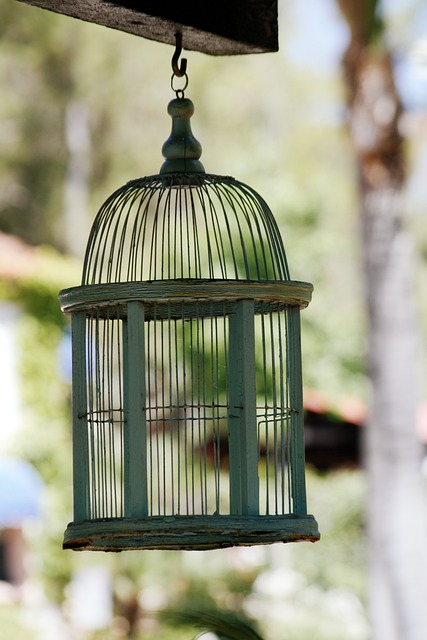Welcome to our Bird Cage Buying Guides section. Here, we provide you with expert advice and recommendations to help you make the best choices when selecting a bird cage for your feathered friends. Whether you’re a first-time bird owner or a seasoned enthusiast, our guides cover a wide range of topics to ensure your pet birds have a safe and comfortable habitat.
Table of Contents:
- Guide 1: Choosing the Right Bird Cage Size
- Guide 2: Cage Material Guide
- Guide 3: Cleaning and Maintenance
Guide 1: Choosing the Right Bird Cage Size
When it comes to creating a comfortable and safe space for your feathered friends, selecting the right bird cage size is paramount. A cage that suits your bird’s size and needs ensures not only their physical well-being but also their mental health and overall happiness.
Factors to Consider:
Species and Size: Different bird species have varied spatial requirements. Research your specific bird species to determine its ideal cage size based on its wingspan, activity levels, and whether it’s a climber or a flyer.
Room for Movement: Birds are active creatures that require space for exercise and exploration. Choose a cage that provides ample room for your bird to spread its wings, move around, and engage in natural behaviors.
Bar Spacing: Consider the spacing between the bars. It should be appropriate for your bird’s size to prevent escapes and ensure safety. Smaller birds may require cages with narrower bar spacing.
Suggested Cages:
To make the selection process easier, here are some recommended bird cage sizes based on common species:
Small Birds (Budgies, Finches): A cage with dimensions of at least 18 inches by 18 inches provides sufficient space. Check out the small bird cages here.
Medium Birds (Cockatiels, Lovebirds): Opt for a cage with dimensions around 24 inches by 24 inches to accommodate their medium size and playful nature. Check out the medium size bird cages here.
Large Birds (Parrots, Cockatoos): Larger species need substantial space. Consider cages with dimensions of 36 inches by 36 inches or more, allowing them to spread their wings freely. Check out the large bird cages here.
Remember, these are general guidelines, and individual preferences and needs may vary. Always prioritize your bird’s comfort and safety when selecting a cage size.
Ready to explore more guides? Head back to our Buying Guides Page for in-depth insights into creating the perfect haven for your feathered companions.

Guide 2: Cage Material Guide
The material of your bird cage plays a crucial role in providing a secure and comfortable environment for your feathered friend. Each material has its own set of advantages and considerations, so understanding the options is key to making an informed decision.
Introduction:
When choosing a bird cage, consider factors such as durability, safety, and ease of maintenance. Let’s explore the most common cage materials and their unique characteristics.
Metal Cages:
- Advantages:
- Sturdy and durable.
- Excellent for larger birds.
- Provides good visibility.
- Considerations:
- May require more frequent cleaning.
- Prone to rust if not properly maintained.
Acrylic Cages:
- Advantages:
- Lightweight and easy to move.
- Good visibility for both you and your bird.
- Resistant to rust.
- Considerations:
- May scratch easily.
- Less suitable for larger birds.
Wooden Cages:
- Advantages:
- Aesthetic appeal.
- Provides a natural feel.
- Generally quieter than metal cages.
- Considerations:
- May be challenging to clean.
- Prone to wear and tear.
Hybrid Cages:
- Advantages:
- Combines features of different materials.
- Offers a balance of aesthetics and functionality.
- Considerations:
- Cost may be higher than single-material cages.
- Check compatibility with your bird’s needs.
Consider your bird’s size, behavior, and your maintenance preferences when selecting a cage material. Each option has its pros and cons, and the right choice depends on the specific needs of your feathered companion.
Guide 3: Cleaning and Maintenance
Maintaining a clean and hygienic environment is essential for the health and well-being of your feathered companions. In this guide, we’ll provide you with practical tips and a step-by-step approach to keep your bird cage clean and your birds happy.
Introduction:
Regular cleaning and maintenance not only ensure a safe and healthy space for your birds but also contribute to the longevity of the cage. Let’s delve into effective cleaning routines and maintenance practices that will make bird-keeping a joyous experience.
Cleaning Schedule:
- Daily Cleaning:
- Remove uneaten food and droppings.
- Wipe down perches and surfaces with a bird-safe disinfectant.
- Replace water and food dishes with fresh ones.
- Weekly Cleaning:
- Replace cage liners or substrate material.
- Thoroughly clean and disinfect perches, toys, and accessories.
- Inspect the cage for any signs of wear or damage.
- Monthly Cleaning:
- Remove your bird from the cage and conduct a deep cleaning.
- Wash the entire cage thoroughly with a bird-safe cleanser.
- Check for any loose parts or areas that may need repair.
Cleaning Products:
Choosing the right cleaning products is crucial to ensure your bird’s safety. Look for bird-safe disinfectants and cleansers that effectively eliminate bacteria and germs without posing a threat to your feathered friends.
Tips for Effective Cleaning:
- Use natural cleaning agents when possible to avoid exposing your bird to harsh chemicals.
- Ensure all cleaning products are thoroughly rinsed off to prevent residue.
- Regularly inspect your cage for signs of wear, rust, or damage.
A clean cage is a happy cage! By incorporating these cleaning and maintenance practices into your routine, you’re creating a healthy and inviting space for your birds to thrive.
Ready to make an informed decision? Dive into our comprehensive buying guides and ensure the comfort and happiness of your feathered friends.